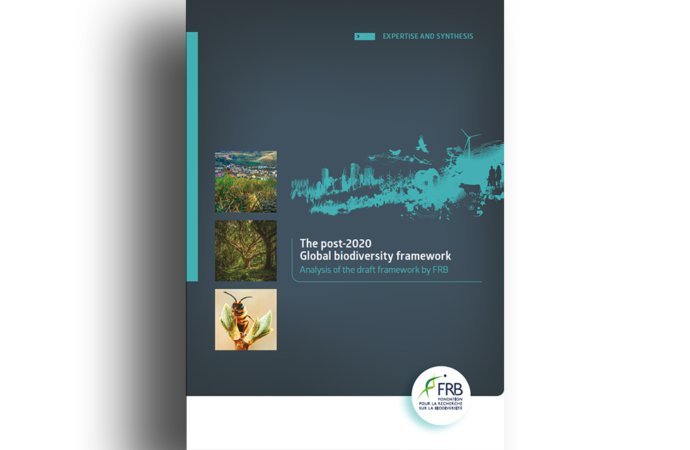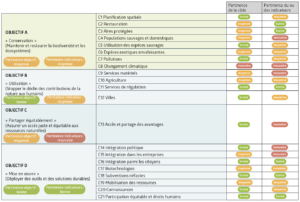The post-2020 Global biodiversity framework – Analysis of the draft framework by FRB
Published in March 2022, as the last negotiation meeting for the next post-2020 global framework was taking place in Geneva, FRB publishes its scientific analysis of the draft framework under discussion.

This report provides scientific insight into the elements under discussion within the Convention on Biological Diversity (CBD).
It considers the draft framework in its official version of July 2021. The relevance of the four strategic goals, 21 action targets and associated indicators is examined in the light of the latest scientific work. This document was prepared by the French Foundation for Biodiversity Research (FRB) at the request of the Foreign Affairs Ministry.
In 2019, the global assessment published by IPBES suggested that a recovery of biodiversity can be achieved through major efforts, transformative changes, meaning deep changes in our lifestyles and consumption patterns that require a fundamental reorganisation of the economic, social and technological factors that govern them.
A global framework must therefore facilitate the implementation of these changes in a coordinated approach at local, national and global levels.
-
21 targets are studied. Targets 1 to 8 aim to reduce threats to biodiversity, in order to respect its intrinsic and instrumental values. Targets 9 to 12 focus on enhancing nature’s contributions to human populations through ecosystem-based approaches or nature-based solutions. The three pillars of the CBD – protection of biodiversity, sustainable use of its components and benefit-sharing – are all connected and all three are necessary, which implies that benefit-sharing must be implemented. A reflection on its broadening would be relevant: going beyond genetic resources and introducing in particular the sharing of benefits from biodiversity and ecosystem services.
-
The first strategic goal (A) is to maintain and restore the integrity of ecosystems. It considers both so-called natural ecosystems and those modified by humans. They differ in their issues and reference states, and must be addressed with their interconnections.
-
Summary table of the evaluation of objectives, targets and indicators :
Robin Goffaux
